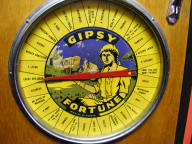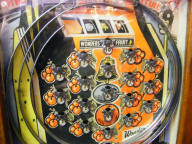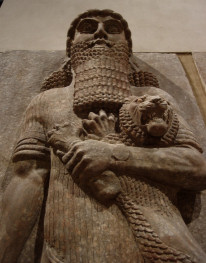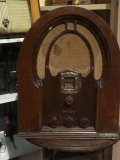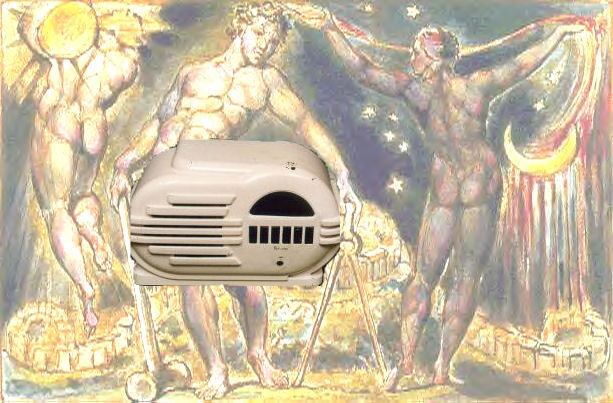Audiences - reception theory - the listener actively constructs a story from the fictional data provided by the radio play
Gathering together reception theory for radio drama

FOR RADIO DRAMA: the process by which a perceiver actively constructs
a story from the fictional data provided by any narrative medium.
| Fiction works across all the media (print, sight-sound media, the monaural medium of radio) are filled with many visual images and sound events, already in place and some newly born. |
| Radio drama creators channel and reorganise a continuing succession of radio drama texts. Each has the possibility of an original contribution. Each text relates to other texts across the media - in intertextual relationships. |
| In human consciousness, the Lifeworld and imaginary worlds coexist. |
| As audiences, we use genre conventions, common sociocultural understandings, and various discourses, including the theoretical, for our reading (or reception). |
| See 'mise-en-scène' - representation of the play scene, locations, spaces and perspectives |
| See Cognitive Mapping and Radio Drama by Alan Beck - monograph - SECTION 3 and 3.2 'Radio Audiences' for cognitive schemata (Branigan) |

|
KEY WORDS: uses and gratifications theory, consumption, reading, extra-radio world. listening as a secondary activity, user, space, listening zone and consummatory field, use of the radio apparatus, space in which the radio apparatus is used, perceptual filling-in, internalist model, externalist model NOTE: The radio director controls not only what is radio play
is broadcast but how: how the staged, extra-radio
world event is recorded and 'framed' (perspective), how long
each segment lasts as you listen to the play scene. reception - what sense people actually make of texts Reception theory was developed by theorists such as Hans Robert Jauss and Wolfgang Iser. Compare uses and gratifications theory, which focuses not on the effects of mass media on people, but on the way people use the media and the gratifications they get from the media. Reception theorists focus on the roles that audiences (readers of texts, decoders of texts) play in the scheme of things, and not on texts themselves.
Reception is also called 'consumption' and 'reading' in different theoretical paradigms (or models). De Certeau is often cited: … the analysis of the images broadcast by television
(representation) and of the time spent watching television (behavior)
should be complemented by a study of what the cultural consumer
"makes" or "does" during this time and with
these images. The same goes for the use of urban space, the products
purchased in the supermarket, the stories and legends distributed
by the newspapers, and so on. See also: Janet Staiger, 'Reception studies in film and television' in Graeme Turner (ed.) The Film Cultures Reader, London: Routledge, 2002, pp. 46-72. Hayward, Susan, 2000, Cinema Studies: The Key Concepts, London: Routledge under 'audience' Morley, David. 1994. Television, Audiences, and Cultural Studies.
New York: Routledge. Felner, Mira, 2006, THE WORLD OF THEATRE: TRADITION AND INNOVATION,
Chapter
2, 'The Audience. Partners in Performance'
Listening as a secondary activity For listening as a secondary activity, see Crisell, 1994, 137 and Beck, 1998, 5 Andrew Crisell, Understanding Radio, Routledge, 1994 Beck, Alan, 1998, 'Point-of-listening in radio drama', Sound
Journal, electronic publication, See also Listening - how people listen
|
|
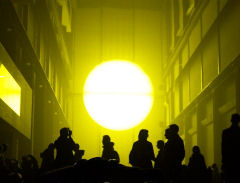
| Other theory issues related to this: Oculocentrism or ocularocentrism |
| Phenomenology |
To Analysing radio drama
To Radio Drama Theory Lesson
Plan
